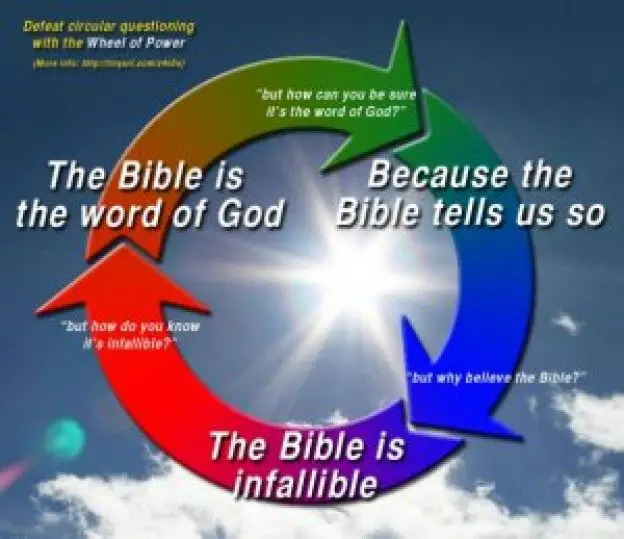Biblical Authority: Support for the Reliability of the Bible
If we are to stand on the Bible while we defend it, we need to know what we are standing on.
Is the Bible credible and why is it worth defending? It’s unique in the sense that it is different than any other book.
We will now launch into a kind of the evidentialist approach to proofs for the truth of Christianity.
Unique in its continuity
Even though the Bible is diverse in different ways, the books of the Bible are clearly a unit.
It was written…
You would not naturally expect writers from all walks of life over 1500 years to agree on such controversial subjects. Of course, this does not prove that the Bible is inspired.
Not only is the Bible unique in its continuity, it is also unique in its circulation.
Unique in Its Circulation
The number of Bibles that have been sold has now reached into the billions.
“The Bible is the best-selling book of the year, every year. Calculating how many Bibles are sold in the United States is a virtually impossible task, but a conservative estimate is that in 2005 Americans purchased some twenty-five million Bibles.”
From Businessweek
“The Bible is the best-selling book in history with approximate sales estimates ranging from 2.5 billion to 6 billion.” This is talking about sales, not distribution.
Of course, this does not prove that the Bible is God’s word. It demonstrates that it is unique.
Unique in Its Translation
The United Bible Societies claims that at least some portion of the Bible has been translated into 2500+ languages with 2000 more languages in process.
Unique in Its Survival
There is more evidence of the historicity of the Bible (that the Bible was written when it says that it was written) than any other piece of literature in history. If the skeptic argues that some fact presented in the Bible may not have happened, then he must also allow for any ancient historical narrative to be falsified as well. This would include all the writings about the kings of Egypt and the Greek writers and philosophers.
Not only this, but the Bible has withstood attacks from many different enemies. It has been burned, band, and outlawed by Roman emperors and communists regime leaders.
Voltaire, a French infidel who died in 1778, said in 100 years Christianity would be swept from existence. Ironically, 50 years after his death, the Geneva Bible Society used his printing press in his house in order to produce the very book he tried to eliminate.
But all of this just demonstrates that it’s unique. But how do we know it’s actually inspired?
Proof of the Inspiration of the Bible
How many of you have been accused of this?

How can you prove the Bible is inspired? What are our options?
It’s self-authenticating; it authenticates itself.
Or, “How do you know that 2 Timothy 3:16 is true?”
“Because it is in the Bible.”
“But how do you know the Bible is true?”
“Because 2 Timothy 3:16 tells us so.”
Or,
X: The Bible must be the word of God because it says it is.
Y: What the Bible says must be true since it is the word of God.
This is considered “fallacious” since it begs the question.
X is only guaranteed to be true if Y is true
Y is only guaranteed to be true if X is true
This is a vicious circle.
Sounds like circular reasoning, right? That’s a logical fallacy.
Begging The Question: Where the conclusion of an argument is implicitly or explicitly assumed in one of the premises.
Circular reasoning is the best fallacy and is capable of proving anything.
Since it can prove anything, it can obviously prove the above statement.
Since it can prove the first statement, it must be true.
Therefore, circular reasoning is the best fallacy and is capable of proving anything.
Well, then since that doesn’t work, let’s try…#2…
Q: But if you present arguments this way, by this method, what are you relying on as the ultimate standard for truth?
A: Your method of testing, namely the validity of rationality and the validity of historical and scientific investigation.
Thus, by using the external test, you assume that the method of testing itself (scientific method/historical method/logic) is the ultimate criterion for truth, which itself is circular reasoning. In other words, what you’re saying is that logic or the scientific or historical method is the standard by which we judge all truth claims.
Basically then, for example, logic is the standard by which I judge whether the Bible is God’s Word. Logic is, therefore, the ultimate standard of truth.
Scenario #1
Joe: “Logic is the only valid test to determine truth.”
Mary: “How do you know that logic is the only valid test for truth?”
Joe: “Because logic tells me so” (in some sense –e.g., ‘it’s dependable’->We’ve used logic for millennia; it’s always worked)
Mary: “That’s circular reasoning.”
Scenario #2
Joe: “Logic is the only valid test to determine truth.”
Mary: “How do you know that logic is the only valid test to determine truth?”
Joe: “Because ________ (e.g., history) has proven it”
Mary: “Then you’re really claiming that _________ is then another valid test to determine truth.”
Joe: “Sure”
Mary: “Prove that that is a valid test to determine truth then.”
Repeat.
For example, in one theism debate, the following is part of Greg Bahnsen’s introductory remarks.
Bahnsen (Christian) quotes Stein (atheist): “The use of logic or reason is the only valid way to examine the truth or falsity of any statement which claims to be factual.”
Bahnsen: One must eventually ask Dr. Stein, then, how he proves this statement itself. That is, how does he prove that logic or reason is the only way to prove factual statements?
He is now on the horns of a real epistemological dilemma.
